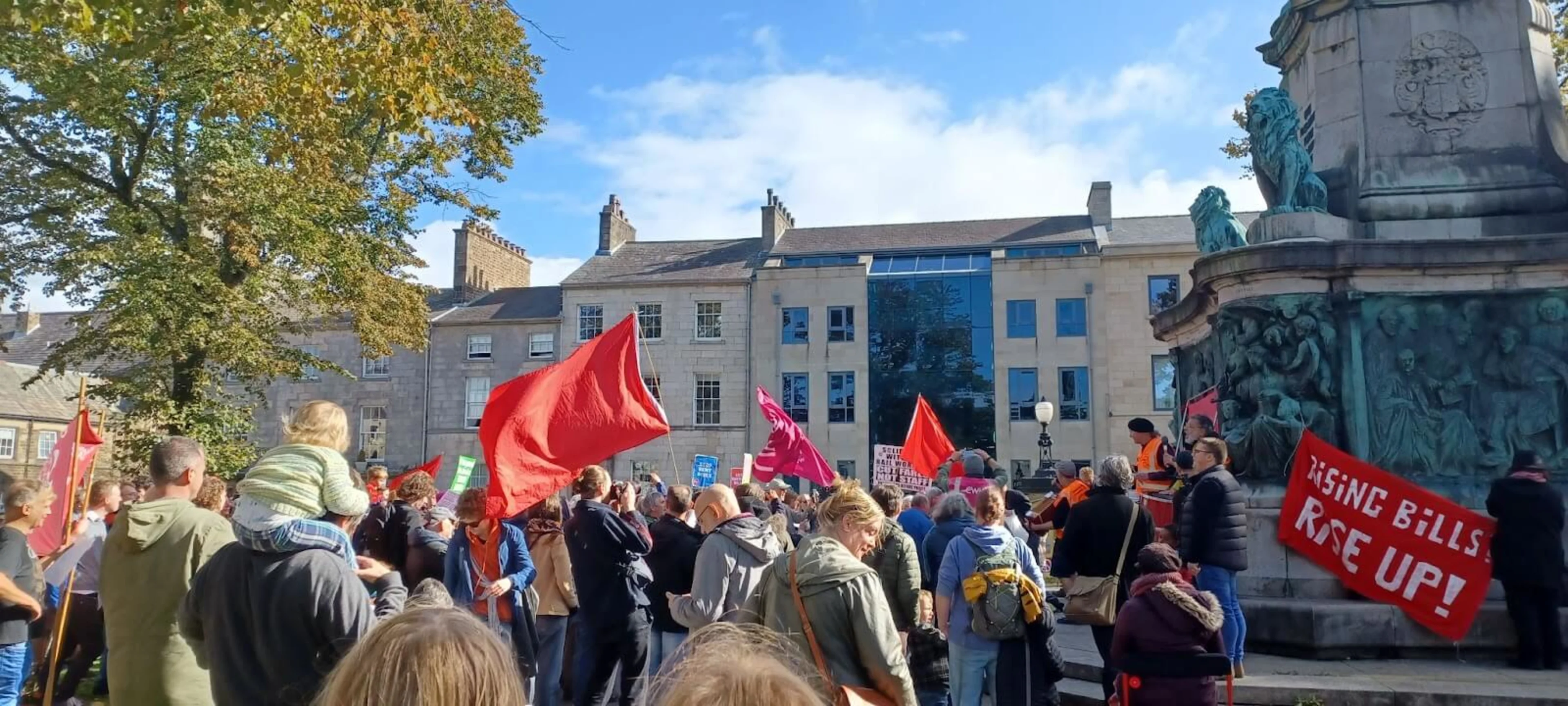Protests happen at Unis everywhere. It took bailiffs in Manchester for people to notice.
13 April 2023

13 April 2023

I’ve been to three picket lines, four protests and witnessed two occupations in the eighteen months I’ve been at university. I’ve heard chanting and music, I’ve seen the same banners and faces time and time again, and I’ve listened to MPs talk and Students Union representatives argue. I’ve stood in the freezing cold and pouring rain with lecturers complaining about their pensions, leafleted with students protesting arms agreements, and marched with members of the public about the cost of living crisis.
There is a part of me, I suppose, that can’t help but wonder if it’s to do with the teenage desire to fight back, to look at the regime and object more vocally than the older generations. It could of course be to do with my new location or the people I surround myself with. And yet, the factor that I always seem to come back to is the very fact that I am at university itself.
I had never experienced any of these things before going to university: perhaps this was the nature of the sleepy village I grew up in, but even with decent transport links to the big cities, I was very far out of my comfort zone when I witnessed my first protest in Lancaster, as it was unlike anything I had seen or experienced before. It took friends dragging me along (and, I suppose, the fact that on several occasions I was writing about them for student publications, so I was interviewing people) for me to be entirely comfortable, purely because it was so radically different.
To sum up several years of ongoing discontent succinctly, the UoM Rent Strike group occupied the Simon building, a large mixed-use academic building, amongst others (including the John Owens building, which contained senior staff offices) in The University of Manchester for six weeks in protest over the lack of any cost of living support and standard of accommodation. This ultimately ended when, after the university failed to meet with the group, they instead chose to take them to court to gain a possession order and use bailiffs to evict the group at 5.20 AM.

One of my friends was inside the occupation during the eviction, and we woke up to a message on a group chat saying that they had been evicted at 6 AM. It’s a sad reality of the situation that none of us were particularly concerned. We were more resigned to the fact that it doesn’t seem like the university particularly cared that the bailiffs physically carried the occupiers out, something that was well documented on phones and has been played on news channels across the country.
Occupations of this nature have happened at universities in many other places across the last academic year. There have been unprecedented actions taken by universities in response in some instances: the use of private investigators at Sheffield University has been well documented, and in Dundee, university security went as far as to call the police on occupiers, an escalation not previously seen before in Scotland. However, for the large part, these actions go ignored.
So forgive me if I suspect that the main reason for the number of strikes and protests I’ve been to since going to uni has been to do with the fact that I’ve quite simply gone to university. It’s not just us: it’s everywhere. There’s a growing pattern of discontent across the country, and students aren’t afraid of letting it out and being vocal. For many people, Manchester has been the final straw. They were there for six weeks, and university management still wouldn’t meet with them. Some of the students attended the court date and attested to the fact that the senior member of staff from the university disappeared through a back exit rather than facing them in person. The occupiers themselves were defended in court by a second-year law student, but failed to fight the possession order. It’s strange to think we live in a world where the only place that students are seeing their senior university staff is in a courtroom.
Maybe the reason strikes have become such a huge part of so many young people’s lives when we go to university is that there are now massive things that affect us personally, and that we want to fight for. I’m not at Manchester University, but if I was, I’d be on rent strike along with the 97% of students at the university who voted on 24th March to support the action.

More people are protesting now than ever, especially more young people. There’s a cost of living crisis, and it seems like there’s a new strike every week. Even in our places of learning, people’s voices are being heard, some for the first time. Yet it feels like more than ever our voices remain unheard. If a building is closed whilst we to get the authorities to listen? Well, I’m all for it.
Written by
Jess Boot-CowieTheatre and Creative Writing student who is interested in the stage, the cinema, and why people do the things they do.
Read next
How will we study at university when we can't afford to live?

Archie Rankin
Seize the semester: Why your university years matter

Liam Cope
Landlords are parasites and you're the host

Sean Ryan
Weekly emails
Get more from Jess
The Fledger was born out of a deep-seated belief in the power of young voices. Get relevant views on topics you care about direct to your inbox each week.
Write at The Fledger
Disagree with Jess?
Have an article in mind? The Fledger is open to voices from all backgrounds. Get in touch and give your words flight.
Write the Contrast